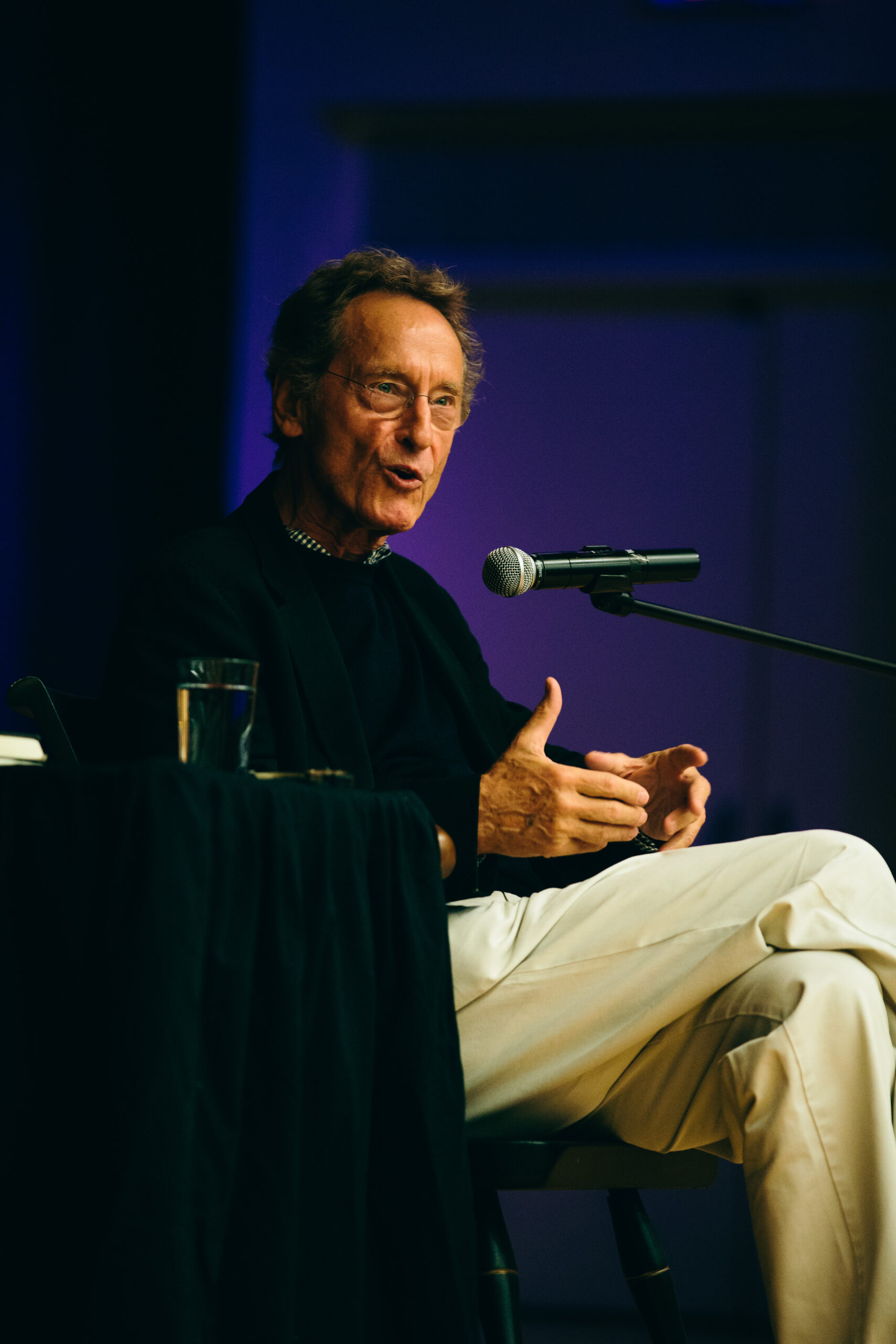Author Bernhard Schlink on historical entanglement
October 19, 2018
 PJ Seelert
PJ SeelertThe clock ticked slowly past seven p.m.—when the event was scheduled to start. Amidst struggles to get the microphone functioning for the evening, Bernhard Schlink was prepared to go on. He called for the crowd to gather forth. They settled in tightly, preparing for an evening of intimate dialogue.
On Monday, German constitutional judge, legal scholar and author Schlink visited campus to read from his acclaimed 1995 novel “The Reader” and open a discussion titled “1968-2018: The Legacy of a Revolution.”
Born in 1944 and raised in postwar Heidelberg, Schlink spent the evening engaging with his American audience over “The Reader.” The novel, set in the same post-Reich German period in which he was raised, follows the story of 15-year-old student Michael Berg and his illicit affair with Hanna Schmitz, an illiterate 36 year-old woman convicted of war crimes.
“I wanted to simultaneously understand [Hanna’s] crime and to condemn it. But it was too terrible for that … When I condemned it as it must be condemned, there was no room for understanding,” said Schlink as he ended the reading.
The evening then transitioned into an open question and answer session. Schlink spoke to the intimate way in which understanding and condemnation relate to himself and his generation.
According to Schlink, the pair of absolutes—understanding and condemnation—are more complex than they initially seem to be.
“You probably know this French proverb … ‘understanding everything means forgiving everything,’” said Schlink. “I understand this proverb and also understand Michael.”
Schlink mirrors the tensions between his generation and the generation of their parents with the relationship between the elder Hanna and younger Michael.
“I think loving someone who committed a crime while not distancing oneself from that person entangles infinitely. At least [that was] what our generation experienced,” he said.
Schlink shares his personal experiences of coping with the wrongs committed by a loved one—in his case an English teacher who inspired his love for language—underscoring the conflict and complexity brought forth by this type of realization.
Schlink doesn’t just use the book as an opportunity to teach lessons. In fact, he works carefully to avoid didactic allegory. It is storytelling that has a key place in Schlink’s work, not moralistic teaching. “The Reader” is a personal response to the complex feelings of entanglement that he describes.
“I realize that the stories that I keep moving around in my mind are stories that deal with things that I’m interested in. Going back to before, growing up in the fifties and sixties, the question of how to relate to the parent generation … how to deal with this generation was the issue for my generation,” he said.
This love for storytelling developed early in Schlink’s life. He recalls his father telling stories that first revealed to him the nuanced truths about the devastation of World War II, contrary to the common tales of Germans being bombed that he would hear as a child. These memories became a way to bridge feeling and truth.
Schlink’s visit was organized in part with help from the Embassy of the Federal Republic of Germany. The Embassy’s Campus Weeks program allows undergraduate U.S. institutions to apply for program funding.
Assistant Professor of German Jens Klenner explained that each year different programs are organized according to distinct themes, with this year’s being “Shaping Germany.” Marking the fiftieth anniversary of the student uprisings in 1968, Schlink’s lecture calls to attention Germany’s relationship to its past as well as the larger discourse on social and political questions.
Klenner, who introduced Schlink, offered a worthwhile sentiment to Bowdoin students as inhabitants of the liberal arts environment.
“To write stories, but more importantly to read the literature, means building bridges between the past and the present, observing both banks of the river, and taking an active part on both sides,” said Klenner.

Comments
Before submitting a comment, please review our comment policy. Some key points from the policy: